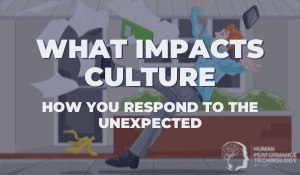Letting Go of the Familiar
NASA couldn’t afford another failure following the tragic launches of the Challenger (1986) and the Columbia (2003). If you’re not aware, NASA’s culture at that time could be summed up by the sign in the Mission Evaluation Room: "In God We Trust, All Others Bring Data".
When organisational culture is ingrained, it is like a tool (or set of rules) that employees use to respond to challenges. Culture itself becomes a familiar and comfortable tool.
Unfortunately an Investigative Board concluded that NASA’s culture “emphasised chain of command, procedure, following the rules… and was not functioning as a learning organisation.” NASA was clinging to what it knew.
So how did they turn that around in just one year with Gravity Probe B (2004)?
The answer was informal individualism by the Program Manager, who did not accept the “go” consensus from leadership and instead delayed the project by 5 months to fix the “unknowns” before a successful launch. It’s powerful to see a culture shift start in that way.
This story is meant to spark a question for you: Are you using only familiar tools to solve the “unknowns” that materialised in your business in 2020? Does your organisational culture embrace new ideas or maintain the status quo - and more importantly, is that working? Talk to us about a review of your culture and your opportunities for growth!
Reference
This NASA case study is part of a series of posts we’re sharing from the book Range: How Generalists Triumph in a Specialised World by David Epstein..
Click here to learn more about Gravity Probe B.

Temre Green, PhD
Head of Consulting Services, Australia & New Zealand. Temre has designed, planned and delivered business strategy and transformation programs that were driven by a range of factors, such as innovation, growth, compliance, regulations, restructures and economic downturns. As an Industrial-Organisational Psychologist, Temre has spent her career dedicated to organisational behaviour and the work environment. She is currently focused on the future of work and multiple areas of organisational development that support organisational growth and health.

/Workshop%2016%20Team%20Culture%20Shaping%20Lab.png?width=374&name=Workshop%2016%20Team%20Culture%20Shaping%20Lab.png)

We Would Like to Hear From You (0 Comments)